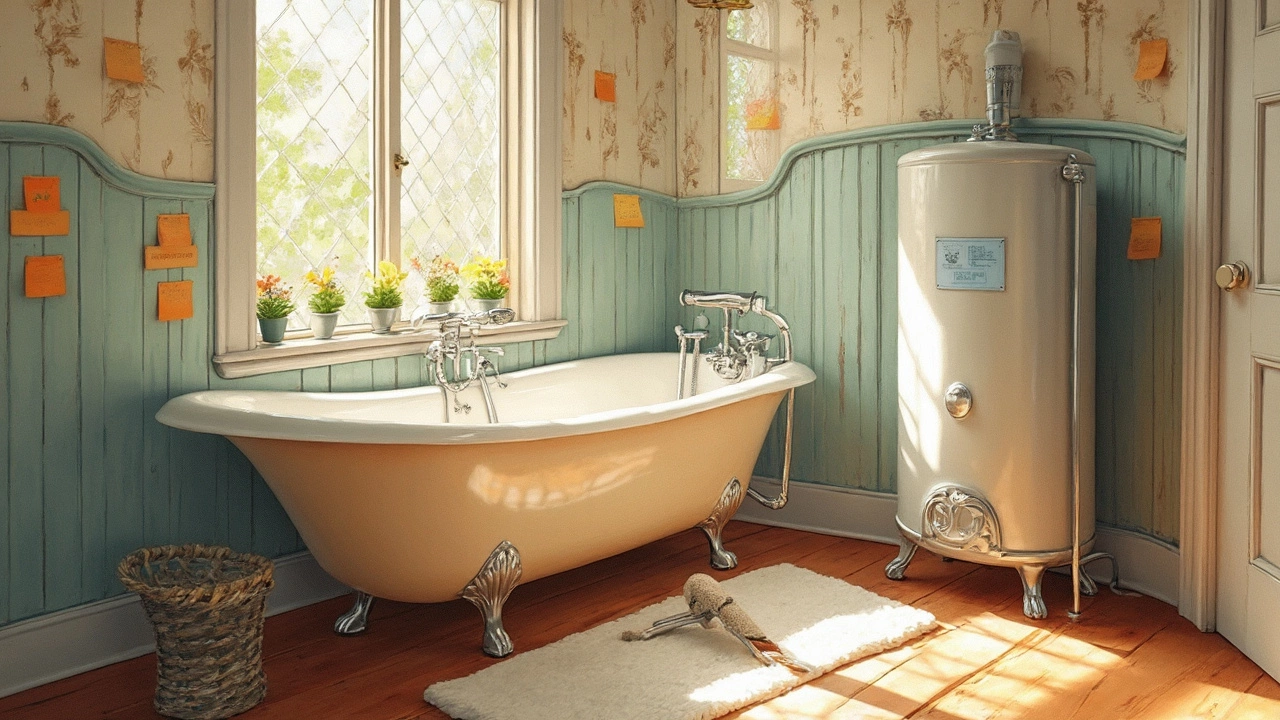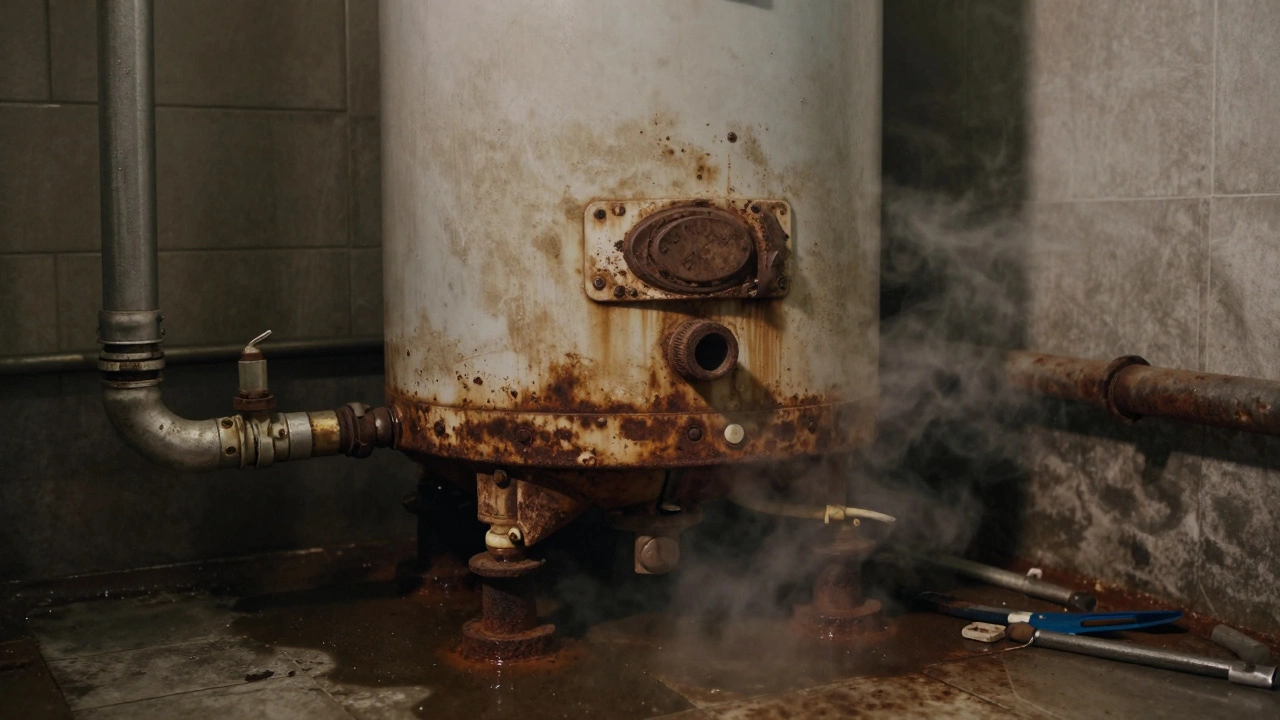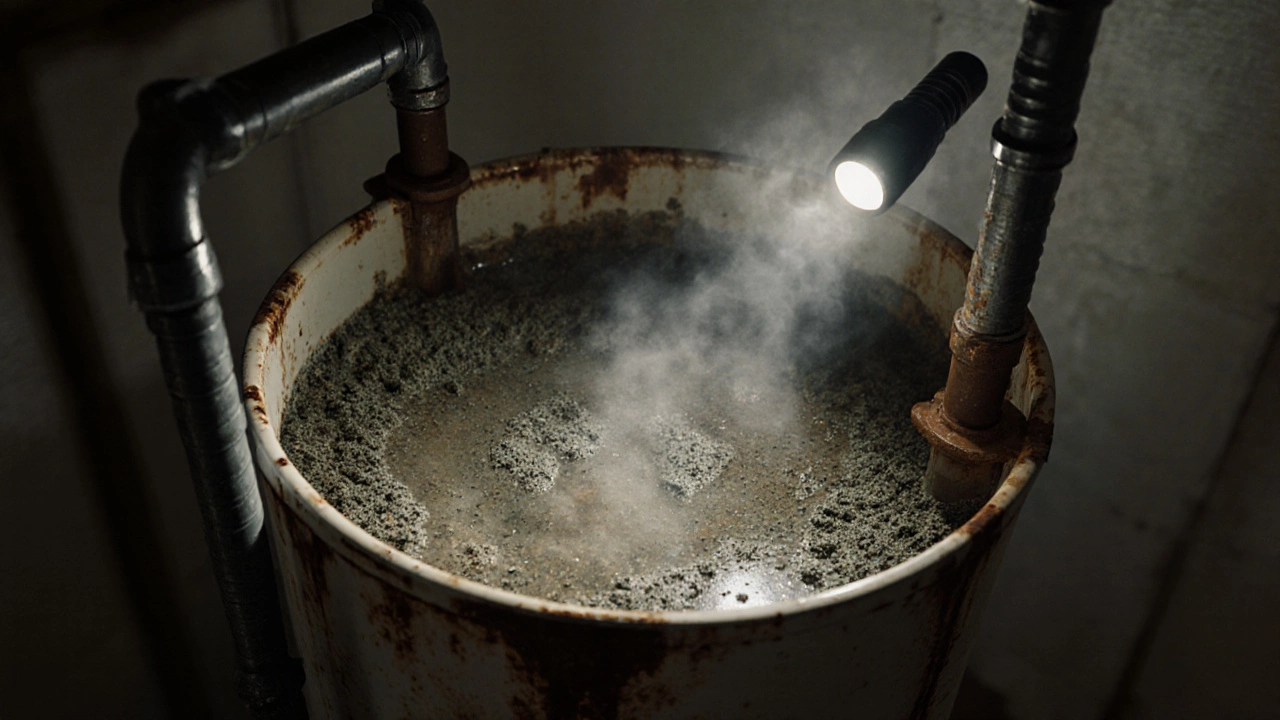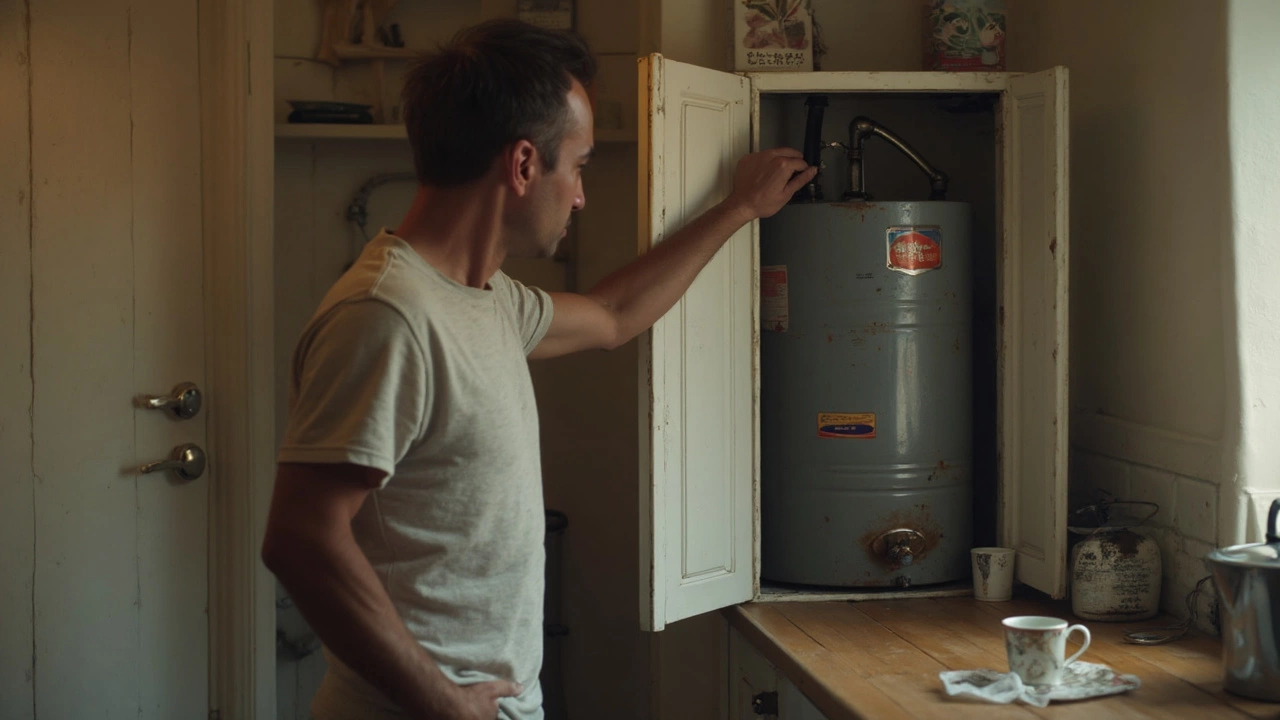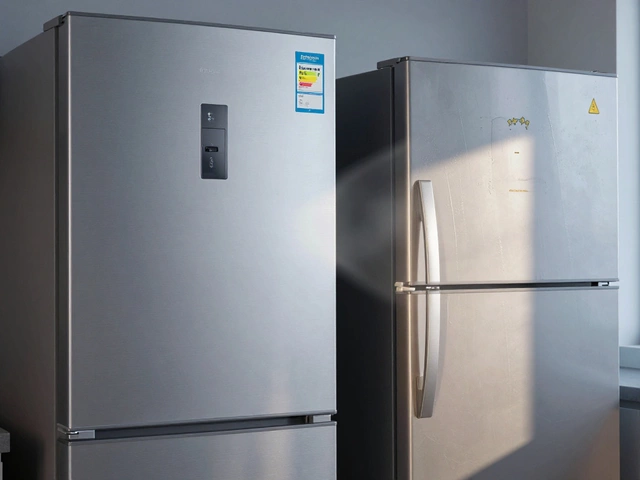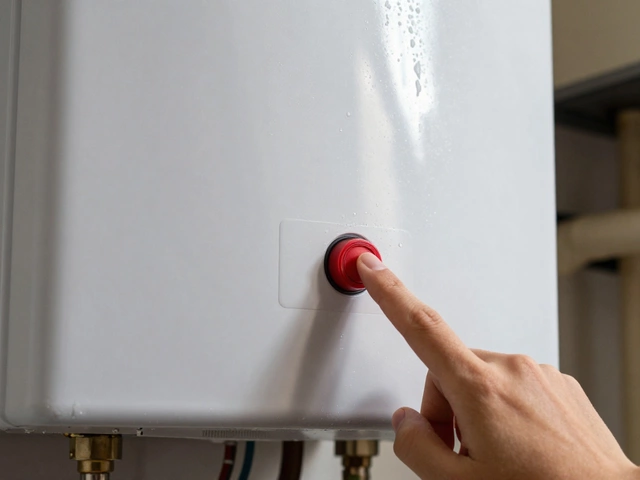How long does a water heater really last? If you're like most homeowners, you might not think about it much until it's too late. But understanding your water heater's lifespan could save you from an unwelcome cold shower or, worse, a costly replacement. On average, traditional tank water heaters last about 8 to 12 years. But there's a catch: lifespan can vary based on the type, brand, and how you treat it.
Let's break it down a bit. Electric heaters typically hang on a little longer than their gas counterparts. That's a useful tidbit if you're weighing options for a new purchase. And don't forget the importance of regular maintenance. Flushing the tank annually and checking the anode rod can make a world of difference.
- Average Lifespan of Water Heaters
- Factors Affecting Longevity
- Tips for Maintenance
- When to Consider Replacement
Average Lifespan of Water Heaters
When it comes to how long a water heater should last, it generally depends on the type and how well it's been maintained. Most traditional tank water heaters have an average lifespan of about 8 to 12 years. That may not seem very long, but with the right care and a little luck, they can last beyond this range.
Let's talk specifics: electric water heaters tend to outlast gas ones. That's because electric heating elements don't endure the same high-stress conditions as gas burners. Now, if you’re really looking to extend your water heater's runtime, you might want to look into tankless models. These energy-efficient machines can last over 20 years, though they come with a higher price tag upfront.
Factors Influencing Lifespan
Several things can impact the lifespan of your water heater. First off, routine maintenance is crucial. Flushing your tank yearly helps to remove sediment that causes corrosion. Another big one? The anode rod. This little gadget helps prevent rust inside the tank and should be checked every couple of years.
Living in an area with hard water? You might be looking at a shorter lifespan, as the mineral buildup can be a silent killer for your heater. In those cases, a water softener can make a significant difference.
Expected Lifespan by Type
| Water Heater Type | Average Lifespan |
|---|---|
| Electric | 10-15 years |
| Gas | 8-12 years |
| Tankless | 20+ years |
Remember, knowing when to replace your water heater can spare you from emergency situations. Keep an eye out for signs like rusty water, rumbling noises, or leaks, so you can act before it’s too late. Better safe than sorry, right?
Factors Affecting Longevity
So, what actually affects how long your water heater sticks around? There are several angles to consider. It's not just about brand names or fancy tech gadgets. It boils down to a few key factors like water quality, installation, and, surprise, how often you actually use it.
Water Quality
The quality of water running through your heater is a biggie. If you reside in an area with hard water, meaning it’s packed with minerals like calcium and magnesium, you're at risk. These minerals can lead to sediment buildup—an enemy for your water heater. They can shorten its lifespan because they make it work harder. Consider water softening solutions if this sounds like your water.
Installation Quality
How well your water heater was installed plays a colossal role. A poorly installed heater can hurt its efficiency and lead to early failures. Always go with a reputable installer who knows the ins and outs of plumbing standards. Making sure it’s installed right the first time is a low-key life saver.
Usage Patterns
How you use your water heater matters too. A household that's constantly drawing hot water will naturally wear it out faster compared to a home with more moderate use. If you’ve got a bustling family, the heater's going to age faster than in a quiet downsized home.
Routine Maintenance
Regular maintenance is like a secret ingredient for making your water heater last. Keep an eye on the system. Flush the heater annually to rid it of sediment and replace the anode rod every few years. Paying attention to these routine practices can seriously extend its lifespan.
So, what's the takeaway here? A mix of factors hits your water heater lifespan. Some are controllable, like maintenance, while others, like water quality, may require an extra step or two. But knowing these can help you plan, adjust, and ultimately save a buck.
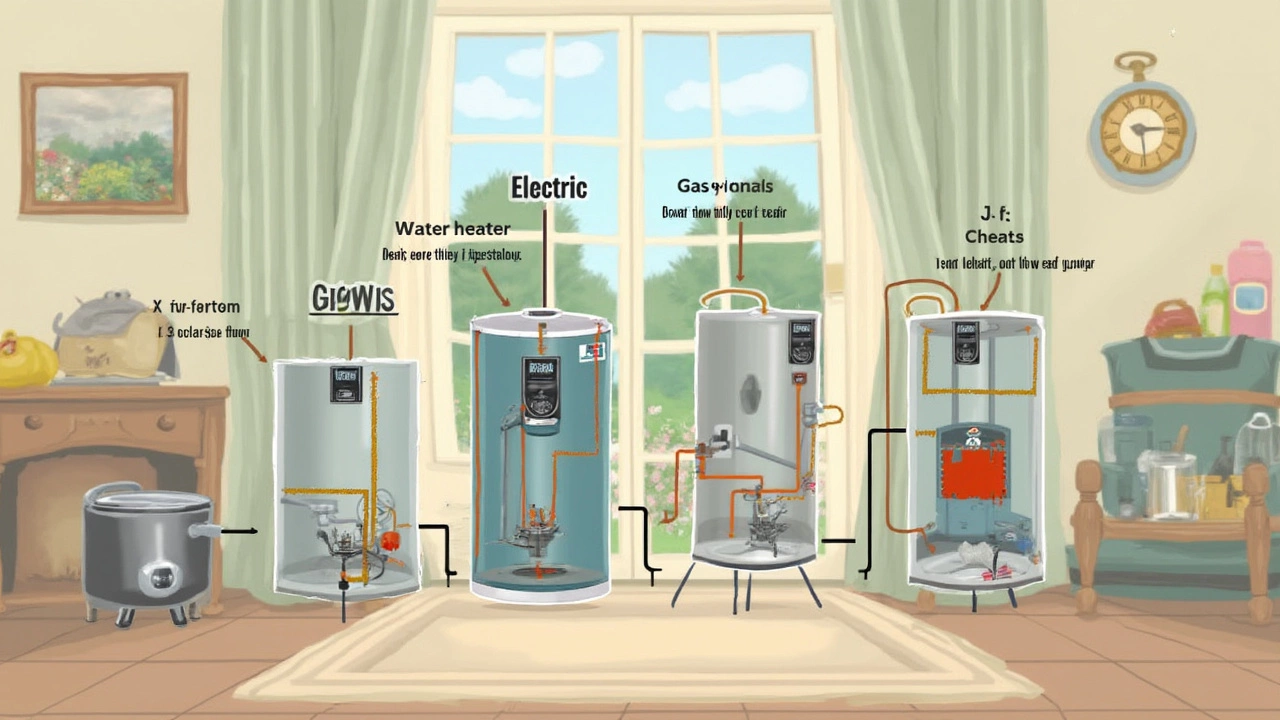
Tips for Maintenance
Taking care of your water heater can significantly extend its life and ensure it operates efficiently. Regular maintenance is key, and it's not as complicated as you might think.
Regular Flushing
Over time, sediment can build up in the tank, causing problems like reduced efficiency and potential damage. To prevent this, it's a good idea to flush the tank once a year. Here's how you can do it:
- Turn off the heater's power or gas supply.
- Connect a garden hose to the drain valve and direct the other end to a drainage area.
- Open the valve and let the water (and sediment) flow out until it's clear.
- Close the valve, remove the hose, and turn everything back on.
Check the Anode Rod
The anode rod is a vital component that helps prevent rust within the tank. Checking it every couple of years is wise. If it's less than half an inch thick or coated with calcium, it's time for a replacement.
Maintain Temperature Settings
Keeping your water heater set at a moderate 120 degrees Fahrenheit not only helps prevent scalding but also reduces mineral buildup and the risk of overheating. Plus, it can save on energy bills!
Insulate the Pipes
If your heater's pipes aren't insulated, wrapping some pipe insulation can minimize energy loss and prevent them from freezing during colder months. It's a quick win for better water heater efficiency.
Inspect for Leaks and Corrosion
Regularly check for any signs of leaks or corrosion around the tank, connections, and valves. Catching these issues early can prevent major water damage or costly repairs down the road.
When to Consider Replacement
So, when should you really start thinking about replacing that trusty water heater of yours? Well, there are a few clear signs that it might be time to say goodbye and invest in a new one.
Age and Performance
If your water heater is pushing a decade or more, it's already on borrowed time. While some units last longer, beyond 10 years, efficiency starts to drop. If you notice it's taking longer to heat water or if the water isn't as hot as it used to be, start planning for a new one.
Noisy Operations
A bit of noise is normal, but loud bangs and pops? Not so much. This could mean sediment buildup, which is pretty common in older heaters. If flushing doesn't help, the noise might be a sign that replacement is a good idea.
Leaks and Rust
Water pooling around the base or visible rust on the tank? These are major warning signs. While a small leak from a valve can be fixed, if the tank itself is leaking or rusting, it's done for. Time to get a new one.
Frequent Repairs
If you're calling the repairman every few months, those repair costs add up. At some point, it's cheaper and smarter to just get a new water heater. Consider the age and reliability; frequent repairs typically indicate the end is near.
In case you're curious, here's a quick glance at different water heater types and their expected lifespans:
| Type | Average Lifespan (Years) |
|---|---|
| Gas Water Heater | 8-12 |
| Electric Water Heater | 10-15 |
| Tankless Water Heater | 20+ |
Knowing these signs can help you avoid unexpected cold showers and surprise costs. It's all about being prepared and making a smart choice before a disaster strikes.
